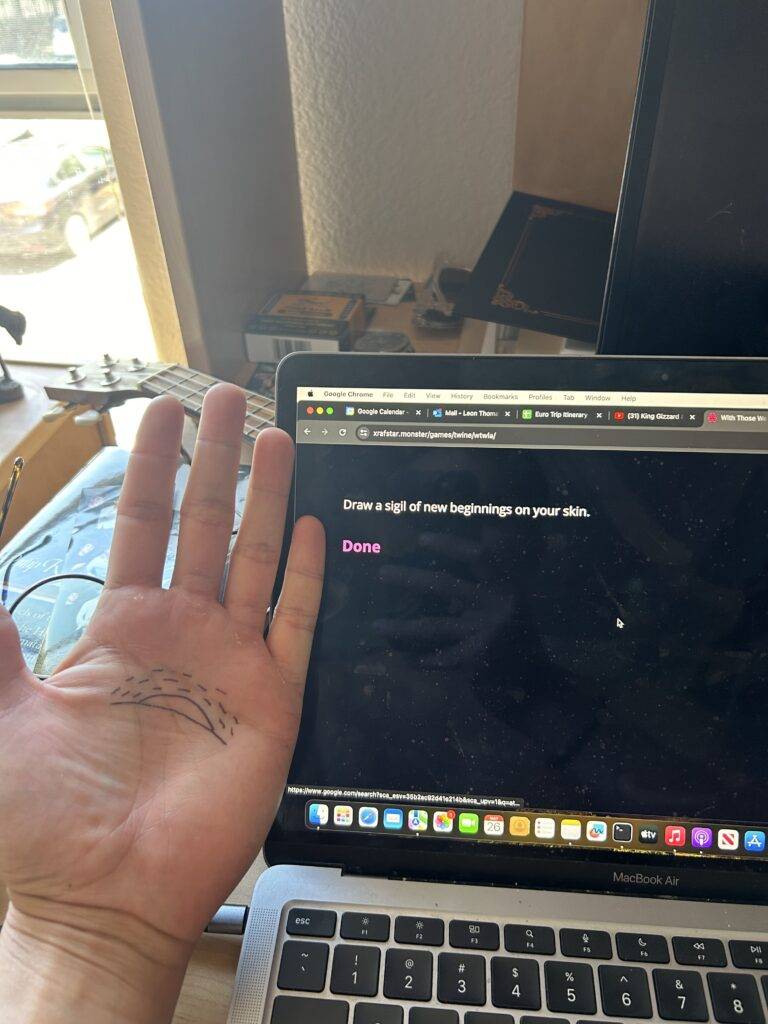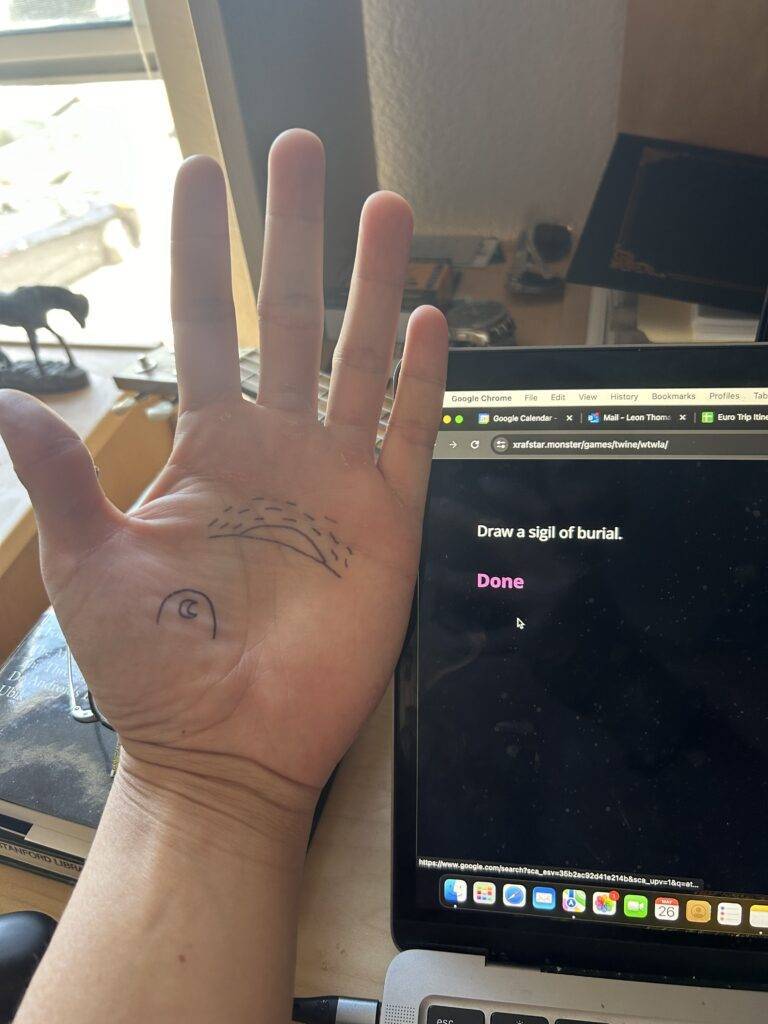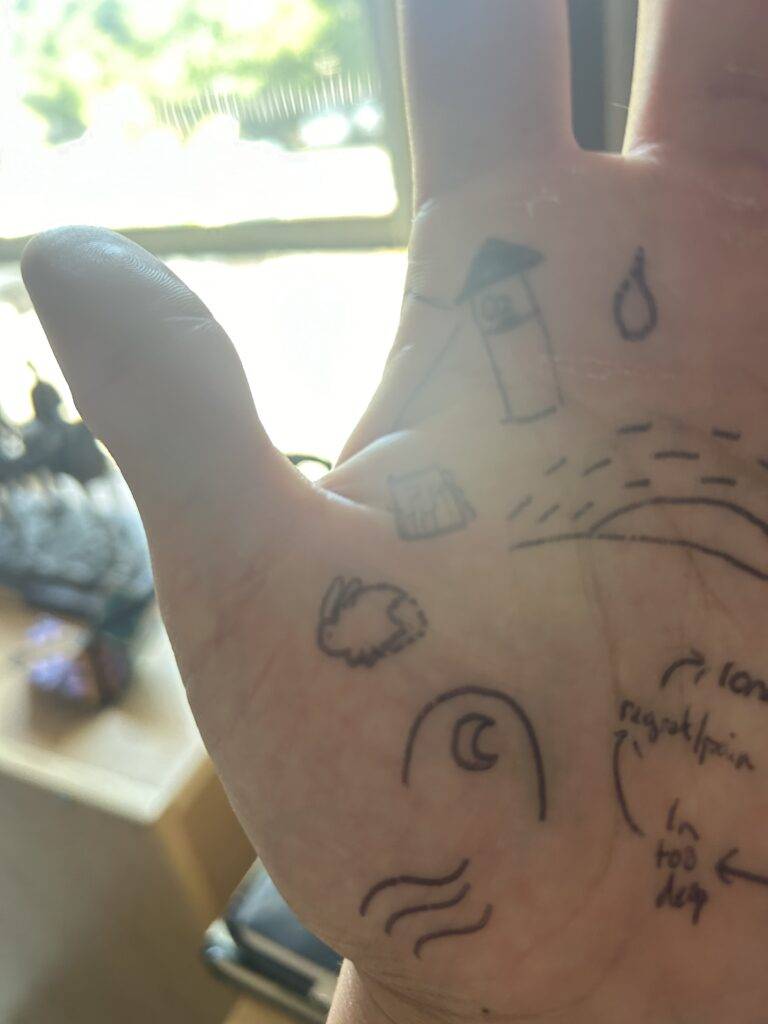With Those We Love Alive is a website based narrative game that takes the reader on an emotional journey that explores various avenues of Mental health and spirituality. Created by Porpentine, this game takes on the structure of a semi-open world game but it is precipitated to a point where the player traverses the world as if they were reading pages in a book. This game’s target audience appears to be anyone with a relative amount of emotional maturity – so anyone that is 18 years of above. Through this interesting game format, I was taken on an incredibly vivid journey to a fantastical world, where I explored an interesting monarchical society, where an insect-like being has complete control over their subjects, who regularly extract and consume other’s dreams.
Prior to playing this class, my only exposure to Feminist theory was through readings in CS347. Here we learned about pluralism, ecology etc. and how to apply it to specific designs. With this context I do believe that this game has added a layer to my new learnings in this particular academic field. During my play through, the game eased me into emotional introspection as I found myself transposing my own experience onto the mysterious origins of the protagonist. Games rarely tap into emotional exploration, and I believe that With Those We Love Alive has done it with absolute expertise. Just so, I agree that the game has taught me to not only play games with a feminist perspective, but to observe the application of various aspects of Feminism in game design. For example, as I will further detail later, the mechanics and the plot development within the game are the antithesis of the typical male oriented style of storytelling This is because male-catering stories often align with action, gaining control etc. as opposed to emotional inquiry or one’s own personal reconciliation with their past and/or identity. Personally, I loved this game, and throughout I was confronted with several things that made me emotionally uncomfortable as it forced me to think of certain emotionally charged events in my own life – ultimately resulting in an extremely cathartic experience.
There are several key game mechanics that prompted me as the player to engage and embody feminist values. The first mechanic is the surprisingly large amount of autonomy I had as I created my character, made choices and also ‘traversed’ through the fantastical and also morbid kingdom. For example during my play through I was able to choose from a combination of options for 1) my own character’s birthday and traits 2) the traits of others and how I perceived the world. I very much enjoyed this mechanic as it manifested itself as a ‘discovery aesthetic, engrossing me in a foreign world that I also felt like I had a say in creating. Indeed, this notion of autonomy aligns strongly with agency and empowerment – where equal autonomy, self-determination and opportunity should be available for all. However upon replaying this game I did notice that much of these autonomous choices did not result in different endings. Therefore this kinda extinguished the feelings of freedom that I felt during my first playthrough as I felt like no matter what I did, my fate remained the same – which could also be seen as a critique, mimicking the inability of women to have their voices heard and invoke change within a patriarchal society.
Another interesting mechanic was the combination of virtual and physical mediums. As pictured below, the game also prompts the user to draw certain symbols that relate to mindfulness concepts e.g. “draw a symbol that represents guilt” or “draw your relationship with the “chasm””. I personally believe that these moments prompted profound emotional responses as I was prompted to think about events that I do feel guilt for, and also events/experiences that I associate with the chasm in which I guess I actively ignore. Consequently, the mechanic of drawing on oneself engrossed me in the story and made me feel extremely emotionally connected to the main character. In addition these moments of internal reflection (and reconciliation at times) encapsulate the feminist notion of how personal experiences are deeply intertwined between social and political structures. This is directly questioned when we find out the main character’s past involved the abusive extraction of her ability to dream when she was a child – which seems commonplace as punishment for criminals and ‘undesirable’ subjects of the Princess. I believe this particular aspect is a great example of “critical design” in video games, where introspection is used in the hopes of prompting players like myself to think back to negative personal experience as a result of societal/political norms.
Screenshots of me early on in the game as I learned more about the world and was given some clues about ‘my’ past
Finally I believe that the storyline and the way in which it is told/presented is the antithesis of traditional storytelling synonymous with predominantly male authors. As opposed to the focus being on actions happening around the protagonist, the creator of the game also makes internal battles within the mind of the feminine protagonist salient. Here I was truly taken on a journey as the protagonist (and I) attempts to reconcile their past, the casual horrors of the kingdom in the present and the mostly boring lifestyle that they lead. I believe that this story struck me in a new way that I haven’t experienced before – as I have read mostly male authors. And upon further research into Feminist theory I do believe from a macroscopic lens, the game is a critique of traditional knowledge and storytelling. And it aims to tell a story that illuminates the historically marginalized experience of women, exposing me to much more diverse ways of knowing.
Overall I believe that With Those We Love Alive is an excellent narrative driven video game that prompts players to become more in touch with their vulnerabilities and emotional side. Besides some flaws, I do believe that the creator has created a game that aligns strongly with Feminist values and I am grateful that I was able to play it.
Shot of my hand at end of the game, with much more emotionally charged symbols for myself (cropped the super personal stuff out – but was an awesome experience would highly recommend)





